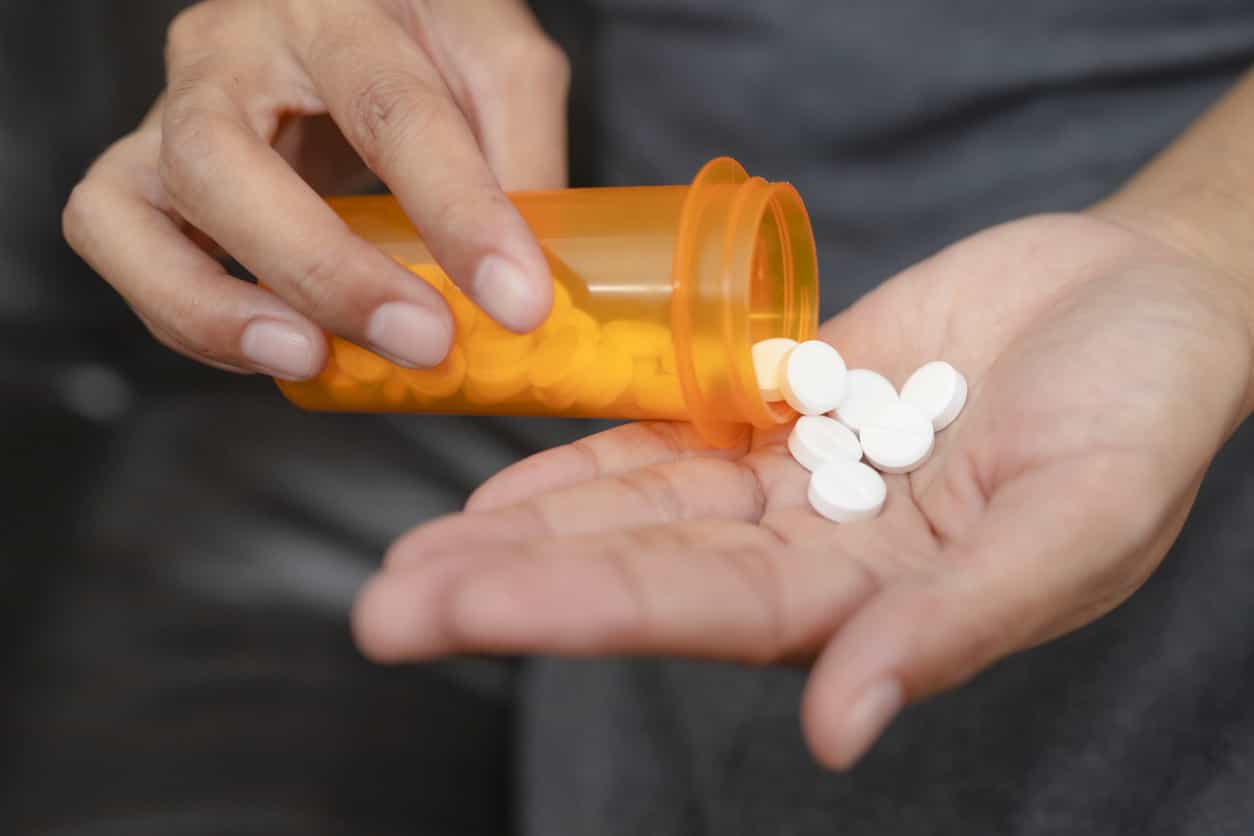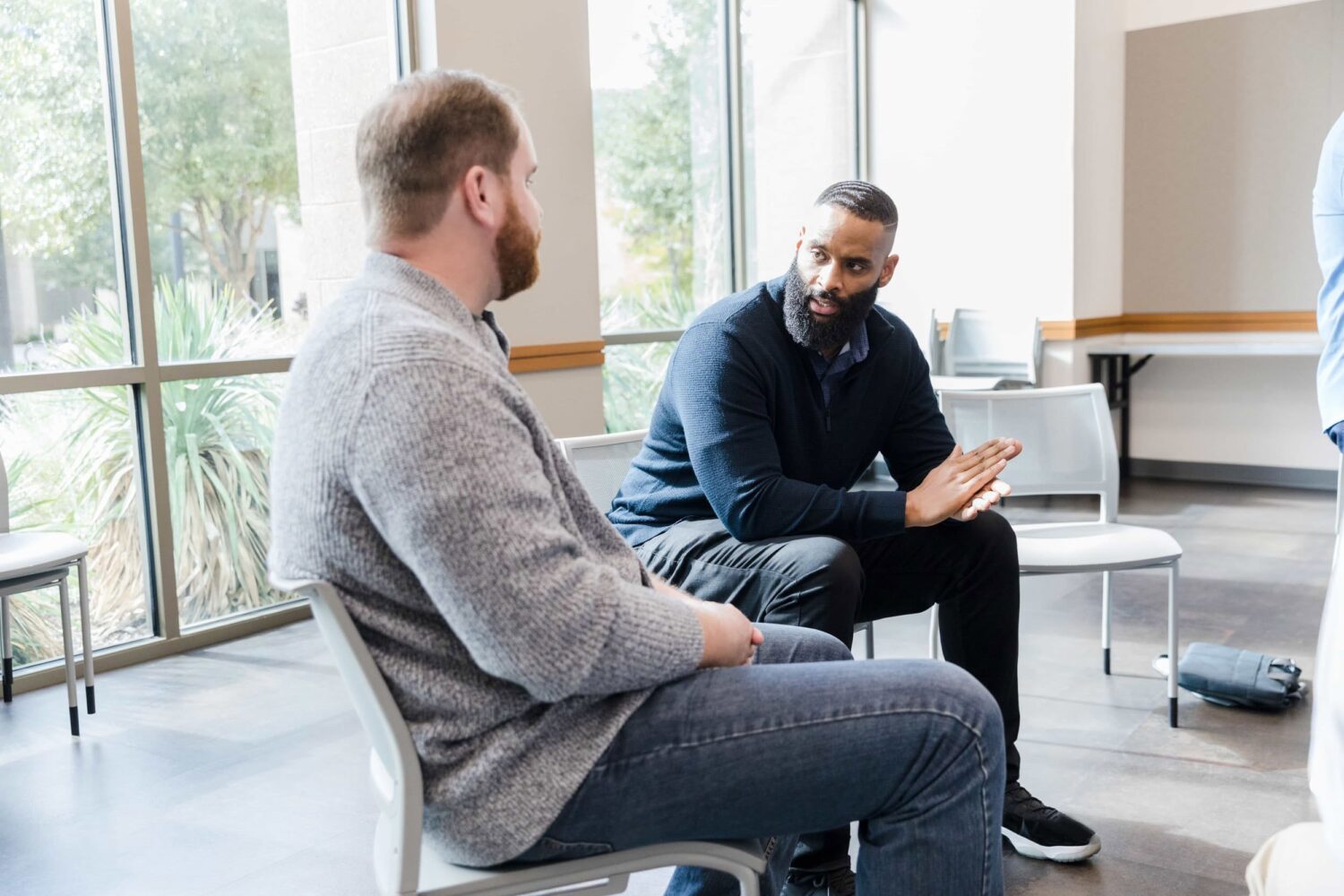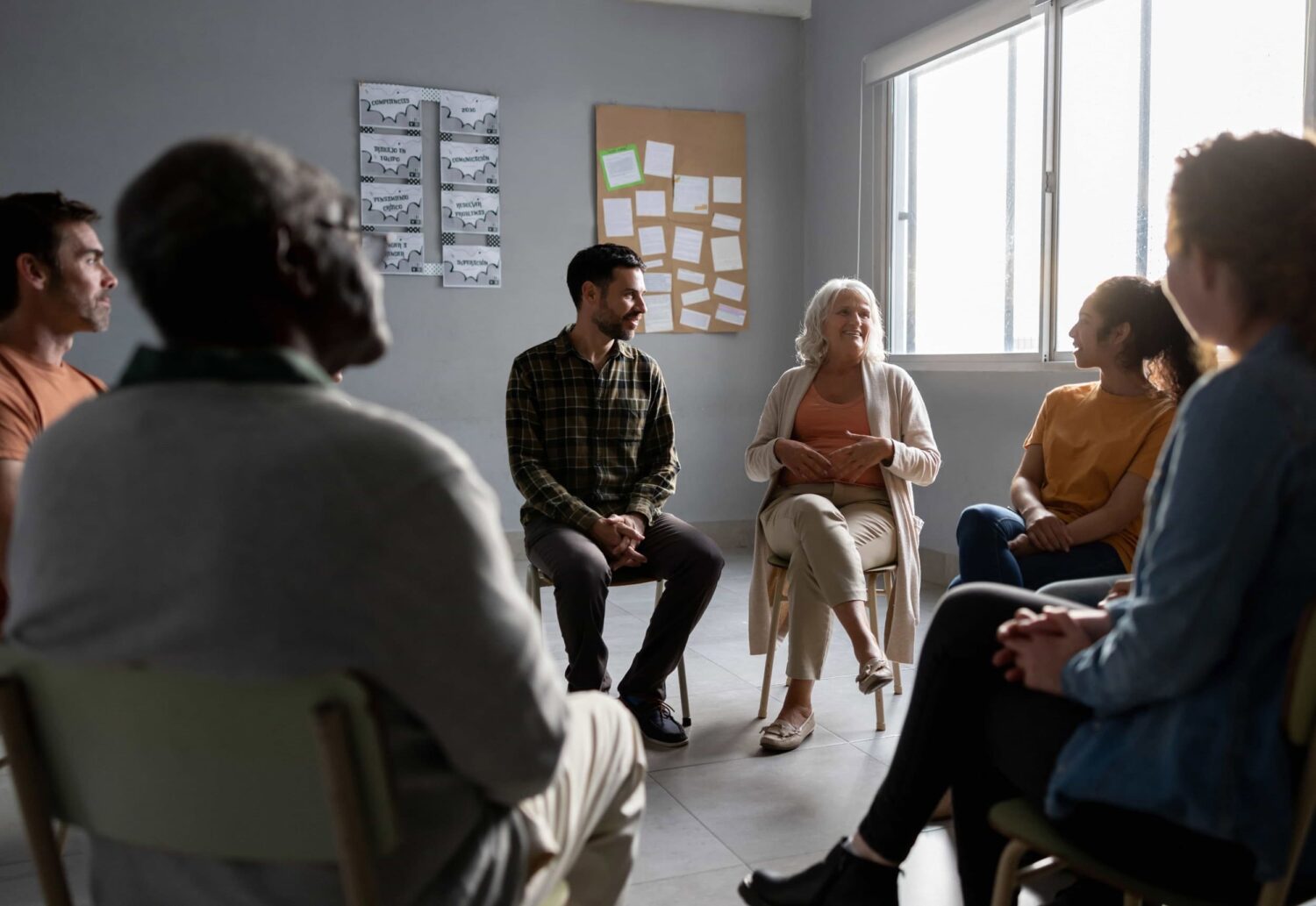Successful recovery and renewal looks different for everyone, but common indicators include improved mental and physical health, stronger relationships, better emotional regulation, and the ability to maintain sobriety. Engaging in therapy, participating in a support network, and applying relapse prevention strategies all contribute to lasting recovery.
Vicodin Addiction Treatment

Reclaim Your Life With Rock View Recovery
Vicodin addiction can take over your life, impacting your health, relationships, and future. But recovery is possible, and you don’t have to do it alone. At Rock View Recovery, we provide compassionate, evidence-based care to help you break free from prescription drug addiction.
Our experienced team understands the challenges of recovery and is committed to supporting you every step of the way. We offer personalized treatment plans, holistic therapies, and a structured environment that fosters healing and long-term sobriety. Whether you’re seeking help for yourself or a loved one, we’re here to guide you toward a healthier, addiction-free future.
At Rock View Recovery, we provide compassionate, evidence-based care for individuals struggling with Vicodin addiction. If you’re battling addiction to this medication, we’re here to help. Our dedicated team of professionals supports you through each step of recovery with personalized treatment plans, holistic therapies, and a safe, structured environment designed for healing.
Why Choose Rock View Recovery?
Choosing the right recovery center is one of the most important decisions you can make when seeking treatment for Vicodin addiction. At Rock View Recovery, we are committed to providing a comprehensive, evidence-based approach to healing that prioritizes your physical, emotional, and mental well-being. Our programs are designed to support clients at every stage of their rehabilitation journey, from residential care to long-term aftercare. Here’s what sets us apart:
Residential Care: 24/7 Support in a Secure, Immersive Environment
Our Residential Program provides a highly structured and supportive setting where clients can fully focus on their recovery. With 24/7 supervision and care from a multidisciplinary team, including medical professionals and behavioral health experts, clients receive intensive therapy and holistic treatments.
The immersive environment minimizes distractions, enhances accountability, and ensures a stable foundation for long-term recovery. By offering round-the-clock medical and emotional support, we help individuals navigate the most challenging phases of early sobriety safely and effectively.

Innovative Therapies: Evidence-Based Practices Combined With Brain-Centered Technology
We believe that recovery should be rooted in scientific research while also embracing innovative solutions. Our treatment approach integrates evidence-based modalities such as Cognitive Behavioral Therapy (CBT), Dialectical Behavior Therapy (DBT), and Motivational Interviewing (MI) with advanced brain-centered technologies like neurofeedback and biofeedback. These therapies help clients rewire negative thought patterns, improve emotional regulation, and enhance overall cognitive function. By combining traditional and cutting-edge techniques, we provide a comprehensive path to recovery tailored to each client’s needs.

Personalized Programs: Treatment Plans Tailored to Your Unique Needs
No two individuals experience addiction in the same way, which is why we customize each treatment plan to meet the unique needs, challenges, and goals of our clients. Our individualized approach considers factors such as co-occurring mental health conditions, personal history, and specific triggers.
Whether a client requires intensive one-on-one therapy, group support, family involvement, or holistic wellness programs, we design a roadmap to recovery that aligns with their journey. Our goal is to empower each client with the tools they need to enjoy the long-term effects of recovery.

Supportive Recovery Community: Ongoing Guidance and Encouragement from Peers and Experts
Recovery is not a journey that should be taken alone. At Rock View Recovery, we foster a strong sense of community where clients find support and encouragement from both their peers and a team of experienced professionals.
Through group therapy, peer mentoring, and alumni networks, we create a space where individuals can share their struggles and triumphs openly. Our Recovery Community extends beyond treatment, ensuring clients always have a network to rely on when facing challenges or celebrating milestones.

Long-Term Success: Aftercare Programs and Alumni Support to Help You Stay on Track
Sustained recovery requires ongoing support long after formal treatment ends. Our aftercare programs include continued counseling, relapse prevention strategies, and access to community resources to ensure clients remain on the path to sobriety. We also offer a robust Alumni Program that connects past clients with peer support, mentorship opportunities, and recovery-focused events. By fostering lasting relationships and providing a structured support system, we help individuals maintain their progress and thrive in their new, sober lives.


Comprehensive Care at Every Stage
Phase 1: Residential Level of Care
Our Residential Program provides a safe, immersive environment where clients receive 24/7 support from a multidisciplinary team of experts, including a Clinical Director, Medical Director, Nurse Practitioner, and Behavioral Health Technicians. Clients engage in evidence-based therapies, wellness activities, and access to innovative brain-center technology designed to heal the mind. We prioritize personalized treatment plans tailored to each client’s unique needs.
Phase 2: Transitional Living – A Recovery Community
As clients progress, they transition to our Recovery Community, a structured living environment designed to bridge the gap between treatment and independent living. Here, they continue to receive support, accountability, and guidance while building essential life skills (vocational and educational advancement programs) while maintaining a strong sense of community.
Phase 3: Aftercare & Alumni Support
Our support doesn’t end after treatment. We prioritize Aftercare Services to ensure long-term success beyond treatment. Through individualized follow-up plans, continued therapy, and access to community resources, we remain a source of strength and guidance. Our robust Alumni Program keeps clients connected through peer support, mentorship, events, and an active recovery network.
Signs You Need Vicodin Addiction Treatment
Vicodin addiction can develop gradually, often without individuals realizing the extent of their dependence. Recognizing the warning signs early is crucial for seeking timely help. Addiction affects both physical and mental health, as well as relationships and responsibilities. If left untreated, it can lead to severe consequences, including health complications, legal issues, and financial struggles.

Common Signs of Vicodin Addiction
If you or a loved one are experiencing any of the following, it may be time to seek treatment:
- Struggling to stop or control Vicodin use.
- Needing higher doses to feel the same effects.
- Experiencing withdrawal symptoms when trying to quit.
- Neglecting responsibilities at work, school, or home.
- Strained relationships due to substance use.
- Persistent cravings for Vicodin.
Seeking treatment as soon as addiction symptoms appear can make a significant difference in recovery outcomes. Early intervention helps prevent the escalation of dependency and allows individuals to regain control of their lives more quickly. Rock View Recovery offers comprehensive treatment programs that address the root causes of addiction, providing the necessary support and structure for lasting sobriety.
Acknowledging the need for help is the first and most crucial step toward recovery. If you recognize these signs in yourself or a loved one, don’t wait to seek support. At Rock View Recovery, we provide a compassionate, structured approach to overcoming addiction, empowering individuals to rebuild their lives with confidence. Our team is here to guide you every step of the way toward a healthier, addiction-free future.
Frequently Asked Questions
Q:How do I know if I’m recovering successfully from Vicodin addiction?
Q:What are some signs that my Vicodin addiction is getting worse?
Warning signs of worsening addiction include needing higher doses to achieve the same effects, experiencing withdrawal symptoms when trying to quit, neglecting responsibilities, isolating from loved ones, and developing financial or legal issues related to substance use. Seeking treatment early can prevent further deterioration.
Q:How can I cope with Vicodin addiction after treatment?
Long-term recovery requires continued effort and support. Establishing a daily routine, attending therapy or support groups, engaging in healthy habits, and building a strong support system are essential. Identifying triggers and having a relapse prevention plan can also help sustain sobriety.
Q:Can lifestyle changes help with Vicodin addiction recovery?
Yes, adopting a healthy lifestyle can significantly aid recovery. Regular exercise, nutritious eating, adequate sleep, mindfulness practices, and engaging in hobbies or social activities help reduce stress and improve overall well-being, making it easier to maintain sobriety.
Q:How can I stay motivated during my recovery from Vicodin addiction?
Setting realistic goals, celebrating small milestones, surrounding yourself with supportive people, and reminding yourself of the reasons you chose sobriety can help maintain motivation. Journaling progress and seeking guidance from a mentor or therapist can also reinforce commitment to recovery.
Q:What are some common challenges during the early stages of recovery?
The early stages of recovery often come with withdrawal symptoms, cravings, emotional instability, and adjusting to a new lifestyle. Learning new coping skills, building a supportive network, and seeking professional guidance can help navigate these challenges successfully.
Q:How can I support a loved one recovering from Vicodin addiction?
Supporting a loved one in recovery involves offering encouragement, being patient, and educating yourself about addiction. Encouraging them to seek professional help, attending support groups together, and setting healthy boundaries can all contribute to their success.
Take the First Step Today
Don’t wait any longer. Contact Rock View Recovery today to start your journey toward healing and lasting sobriety. Our team is ready to provide you with the guidance, support, and resources necessary to achieve lasting recovery. Whether you have questions about our programs, need assistance with the admissions process, or are looking for immediate help, we are here for you. Take the first step towards a healthier, addiction-free life by reaching out to us today. Your recovery begins now.